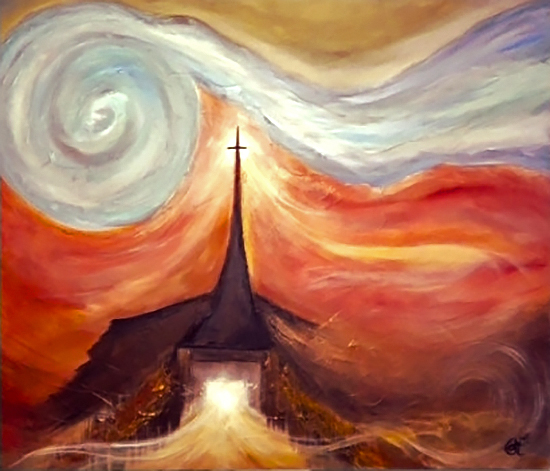
It’s not easy in any given situation to tell what’s right and what’s wrong, and even more difficult to tell what’s sinful and what’s not. Intending no offense to how our churches and moral thinkers have classically approached moral questions, I believe there’s a better way to approach them that, more healthily, takes into account human freedom, human limitations, and the singular existential situation of every individual. The approach isn’t my own, but one voiced by the Prophet Isaiah who offers us this question from God: What kind of house can you build for me? (Isaiah 66, 1) That question should undergird our overall discipleship and all of our moral choices. Beyond a very elementary level, our moral decision-making should no longer by guided by the question of right or wrong, is this sinful or not? Rather it should be guided and motivated by a higher question: What kind of house can you build for me? At what level do I want live out my humanity and my discipleship? Do I want to be more self-serving or more generous? Do I want to be petty or noble? Do I want to be self-pitying or big of heart? Do I want to live out my commitments in a fully honest fidelity or am I comfortable betraying others and myself in hidden ways? Do I want to be a saint or am I okay being mediocre? At a mature level of discipleship (and human maturity) the question is no longer, is this right wrong? That’s not love’s question. Love’s question is rather, how can I go deeper? At what level can I live out love, truth, light, and fidelity in my life? Beyond a very elementary level, our moral decision-making should no longer by guided by the question of right or wrong, is this sinful or not? Rather it should be guided and motivated by a higher question: What kind of house can you build for me? At what level do I want live out my humanity and my discipleship? Do I want to be more self-serving or more generous? Do I want to be petty or noble? Do I want to be self-pitying or big of heart? Do I want to live out my commitments in a fully honest fidelity or am I comfortable betraying others and myself in hidden ways? Do I want to be a saint or am I okay being mediocre? What kind of house can I build for God? At a mature level of discipleship (and human maturity) the question is no longer, is this right wrong? That’s not love’s question. Love’s question is rather, how can I go deeper? At what level can I live out love, truth, light, and fidelity in my life? This, I believe, is the ideal way we should stand before the moral choices in our lives.[1]
[1] Excerpt from Fr. Ron Rolheiser’s reflection, “What Kind of House Can You Build for Me?” October 2020.
